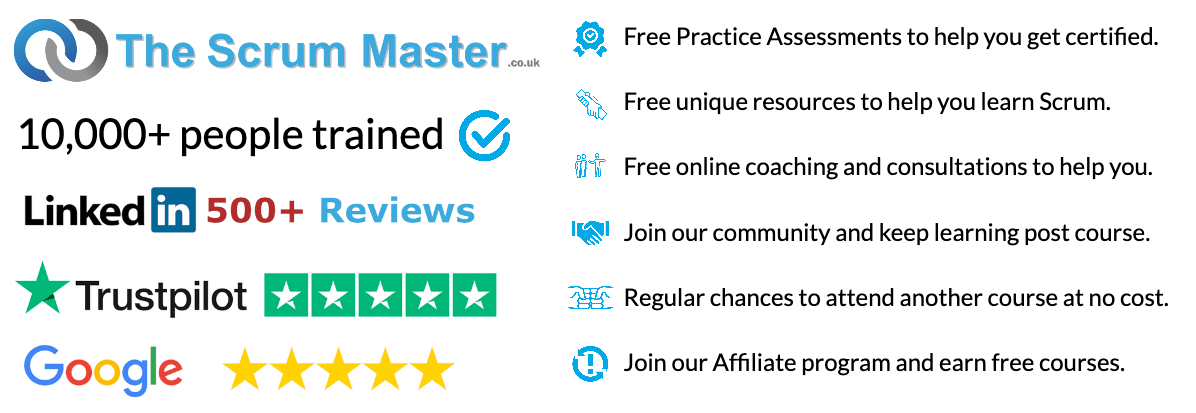 This post continues my ongoing series revisiting the principles behind the Agile Manifesto. This time we are focussing on the following Agile principle – “Agile processes promote sustainable development. The sponsors, developers, and users should be able to maintain a constant pace indefinitely.”
This post continues my ongoing series revisiting the principles behind the Agile Manifesto. This time we are focussing on the following Agile principle – “Agile processes promote sustainable development. The sponsors, developers, and users should be able to maintain a constant pace indefinitely.”
Agile approaches like Scrum have long promoted the importance of working at a sustainable pace. This principle was made part of the Agile Manifesto due to a common practice in the software industry where people were(/are) expected to work extra hours in order to meet a deadline. Commonly this was(/is) used to mask inevitable inaccuracies in planning, poor management and quality issues.
Research in manufacturing industries generally shows that working long hours has a negative impact of productivity. The research in software development is less conclusive but indicates the same is true. I can share from my own experience that when I was asked(/required) to work extra hours earlier in my career this was certainly true. Whilst I may have been present in an office for longer, the work I produced was rarely more and often suffered from quality issues as a result.
 By the eighth hour of the day, people’s best work is usually already behind them. For most people doing knowledge work, 6 hours is about the limit in a typical day. Above this, as fatigue sets in, they are only going to deliver a fraction of their usual capacity. And with every extra hour beyond that, people's productivity level continues to decline, until at around 10 or 12 hours they hit full exhaustion. Quality is also significantly impacted by working extra hours. Investigators in the Exxon Valdez and Challenger explosion found that severely overworked, overtired decision-makers played significant roles in bringing about these disasters.
By the eighth hour of the day, people’s best work is usually already behind them. For most people doing knowledge work, 6 hours is about the limit in a typical day. Above this, as fatigue sets in, they are only going to deliver a fraction of their usual capacity. And with every extra hour beyond that, people's productivity level continues to decline, until at around 10 or 12 hours they hit full exhaustion. Quality is also significantly impacted by working extra hours. Investigators in the Exxon Valdez and Challenger explosion found that severely overworked, overtired decision-makers played significant roles in bringing about these disasters.
Adding more hours to the workday does not correlate one-to-one with higher productivity. Working overtime is unsustainable in anything but the very short term. Yet the practice is still commonplace, despite the mounting evidence. Why do organisations still expect this extra work?
There is always a business need and a desire for more results. Many markets are highly competitive so organisations expect their people to work long hours to “get more done”. But this practice, when overused will have a potentially large negative impact on the people affected. Consequences include health issues including stress and burnout. I know of many people who were left unable to work for long periods of time after they had experienced poor working environments that took a toll on their health and well-being leading to burnout. It, unfortunately, was(/is) a common occurrence.
There has been much in the news of late relating to this issue. Elon Musk has asked Twitter employees to decide whether they are willing to work long hours “at high intensity” or leave and take three months' severance. He is on record describing a sustained 80-hour week as the norm for those seeking to “change the world”.
 Work cultures like those required by Elon Musk are not uncommon. Amazon, Google and Microsoft are also well known for expecting employees to go the “extra mile”. This is not unique to the software world. Many other industries had(/have) similar expectations and practices. Despite evidence to the contrary, these practices may work for some companies at times, but at what cost? The costs are typically what gets overlooked when these practices are used. The cost is paid by the people impacted. The organisation expects (often unpaid) overtime from its employees and reaps the benefits (if they exist) from the extra productivity. These benefits are rarely shared with employees in a meaningful way. Meanwhile, the employees are left to pay the cost through poor health and reduced personal time. Yes, people can leave these companies, but that is not always realistic or possible for everyone, especially in a weakening economy.
Work cultures like those required by Elon Musk are not uncommon. Amazon, Google and Microsoft are also well known for expecting employees to go the “extra mile”. This is not unique to the software world. Many other industries had(/have) similar expectations and practices. Despite evidence to the contrary, these practices may work for some companies at times, but at what cost? The costs are typically what gets overlooked when these practices are used. The cost is paid by the people impacted. The organisation expects (often unpaid) overtime from its employees and reaps the benefits (if they exist) from the extra productivity. These benefits are rarely shared with employees in a meaningful way. Meanwhile, the employees are left to pay the cost through poor health and reduced personal time. Yes, people can leave these companies, but that is not always realistic or possible for everyone, especially in a weakening economy.
At the same time, many organisations are looking at the potential benefits of shorter work weeks. In the UK, 100 companies are taking part in a trial of 4 day work week. The jury is still out on the impact of this, but it is interesting to see organisations pushing in the opposite direction away from overtime and extra hours.
What can we do about all this? The answer is simple and provided by the Agile Manifesto – Work at a sustainable pace. You should be able to work without suffering negative consequences. Extra hours should be used sparingly or not at all. Scrum Masters, Product Owners and other professionals should follow the wisdom contained in this Agile Principle. More valuable products created by happier people will be the reward.
--
 Hi, my name is Simon Kneafsey and I am a Professional Scrum Trainer with Scrum.org & TheScrumMaster.co.uk. I am on a mission to simplify Scrum for a million people. I have helped over 10,000 people so far and I can help you too.
Hi, my name is Simon Kneafsey and I am a Professional Scrum Trainer with Scrum.org & TheScrumMaster.co.uk. I am on a mission to simplify Scrum for a million people. I have helped over 10,000 people so far and I can help you too.
Learn more at TheScrumMaster.co.uk and signup for our newsletter with 80,000+ practitioners.


